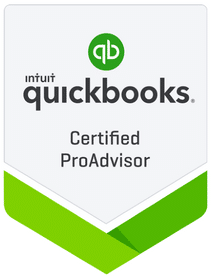- Patrick Roney
- (877) 503-8607
Follow Us :
Follow Us :
Proledge
October 21, 2024
Since you are reading this post, you are most likely the administrator of a Texas-based business and want to identify the primary variations between accounting services and those offered by our nationally recognized professional bookkeeping agency. Is there even a difference between bookkeeping and accounting? Yes, and it has to do with the interpretation of the recorded financial data. Our company can manage your company’s transactional information. Yet, if you require specialized, in-depth help, an intelligent idea would be to call on a CPA who can work alongside us.
The principal purpose of bookkeeping is to ensure that the transactional data recorded by your firm is cataloged and prepared for audits or inspections from external parties. Our bookkeeping specialists will ensure that your receipts and payments are correctly recorded, reconcile bank statements, and prepare the necessary documentation for your tax returns. To put it simply, in bookkeeping, the main goal is to record financial data and store it securely.
On the other hand, in accounting, the primary purpose is for the recorded transactional information to be interpreted and used to improve economic performance. CPAs must have in-depth knowledge of Texas tax legislation, and the tasks they are expected to perform are more complex than those of bookkeepers. Moreover, while bookkeepers can sometimes work in tandem to reduce the costs of operations, CPAs, more often than not, work alone and handle the transactional data for a smaller number of clients compared to bookkeepers.

Accounting and bookkeeping are similar but not the same. What is the difference between them? In short, how data is interpreted and the complexity of the operations performed. For young entrepreneurs, our services are more financially advantageous than those of certified accountants. However, the complexity of the financial operations performed by CPAs will be higher. The purpose of bookkeeping is to record financial data. Meanwhile, in accounting, the goal is to make use of it.
In Texas, certified public accountants must complete at least 150 hours of college education, obtain a bachelor’s degree in a relevant field, and apply to the Texas State Board of Public Accountancy for their CPA examination, which must be passed with a score of over 75. Are you trying to find a difference between bookkeeping and accounting? You should start with the educational requirements. To obtain their license, CPAs must pass an ethics examination and have one year of work experience under the tutelage of an experienced CPA. It’s a lot, and there is a good reason for this, as CPAs are expected to perform complex tasks that are crucial for the financial management of modern businesses.
Are you looking to learn the difference between bookkeeping and accounting? Then, you should look at the performed tasks. A comparison of bookkeeping and accounting indicates that CPAs are expected to conduct regular audits of transactional data, supervise the preparation of tax returns documentation, help businesses achieve compliance with the financial regulatory practices active in their industry, and provide comprehensive financial consulting that takes into account changes in their clients’ sectors of activity. Our specialists can handle the recording of daily financial transactions, manage your accounts, and reconcile your financial books with the data recorded by the banks you are collaborating with.
However, CPAs provide complex services that require more than bookkeeping knowledge. Do you want to work with a CPA? You are not the only one. Currently, there are around 50,000 certified public accountants active in Texas, and no matter who you choose, our firm can collaborate with them. Accounting and bookkeeping are not the same. However, the final goal is similar: to make your business more competitive and help you achieve financial freedom.


Fill out the form below to sign up to our Blog Newsletter and we’ll drop you a line when new articles come up.

For many business owners, taking care of their business is like taking care of a baby. If you want a successful business, you need to always pay attention to the

Bookkeeping and accounting are words that are used interchangeably by most people. It’s true that both of these are about the financial management of your business, but in different ways.

It’s that time again! The tax season is slowly but surely coming to an end and that means you can’t postpone it anymore. You’ve got to figure it out. We

There are lots of businesses that need to find efficient ways to keep track of their finances nowadays, and if you are a business owner, you have experienced this first-hand.

As we all know, automated means of running your business have started to become very popular recently due to all of the perks that it provides. This is not to

So you’re at that point in developing your small business where you’re looking into accounting solutions. If so, you might have started to wonder what’s the best bookkeeping software for
Bookkeepers.
Professional. Affordable.
ProLedge is a bookkeeping services firm.
Copyright © 2024 All rights reserved.